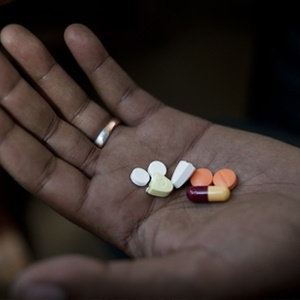
They also sequenced the genome of another dangerous strain called multi drug-resistant TB, as well as run-of-the-mill TB bugs, and found a few mutations may explain how the mutant strains evade antibiotics.
How TB outwits drugs
"By looking at the genomes of different strains, we can learn how the TB microbe outwits current drugs and how new drugs might be designed," said Megan Murray of the Broad Institute at the Massachusetts Institute of Technology and Harvard University.
The team at Broad, well known for its genome sequencing work, decided to make its findings public immediately instead of waiting to publish the study in a scientific journal.
"It is important that genomic data be made immediately available, particularly to researchers in areas most heavily burdened by disease," said Broad's Eric Lander.
TB is a disease caused by a bacterium called Mycobacterium tuberculosis. It infects up to 2 billion people, one-third of the world's population, although most have latent, or inactive infections.
In 2005, 8.8 million people became infected with TB and 1.6 million died from it. It takes months of careful antibiotic treatment to clear the infection.
The microbe can mutate and now an estimated 500 000 people globally have multi drug-resistant (MDR) TB, according to the World Health Organization. Standard antibiotics do not affect MDR-TB, and patients need special drugs.
Extensively drug-resistant TB, XDR-TB for short, is virtually immune to traditional antibiotics and kills up to 85 percent of those infected.
KZN strain studied
The researchers studied an XDR-TB strain that affected hundreds of people in KwaZulu-Natal.
"Genetic characterisation of this strain is essential for developing tools to get this epidemic under control," said Willem Sturm, of the University of KwaZulu-Natal, who worked on the study.
The researchers also identified some genes that may be important to the spread of TB. They said it was lucky the various strains are so similar genetically.
May lead to rapid diagnosis
"These results also lay the groundwork for the development of a rapid diagnostic test for TB," Murray said in a statement.
"Such a test would enable more rapid and accurate diagnoses, and help to prevent the spread of TB - especially the most virulent strains."
It can take weeks to tell if a person is infected with standard TB or a more dangerous MDR or XDR strain.
The sequences are published on the Internet at http://www.broad.mit.edu/XDR_TB or through the TB database, www.tbdb.org. – (Reuters Health)
For more information on care and support of tuberculosis visit South African National TB Association (SANTA) or phone them on 011 454 0260.
November 2007




 Publications
Publications
 Partners
Partners















